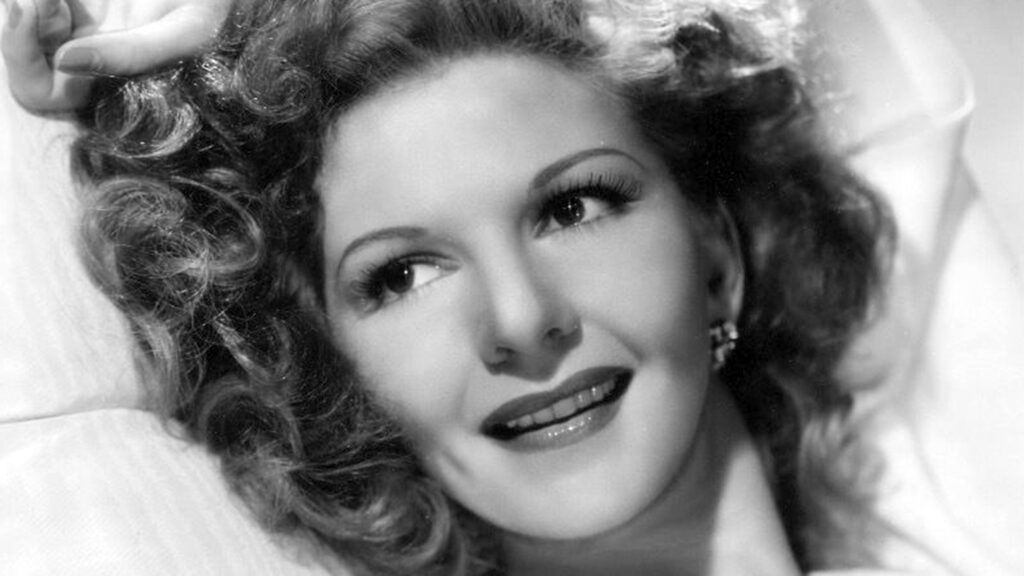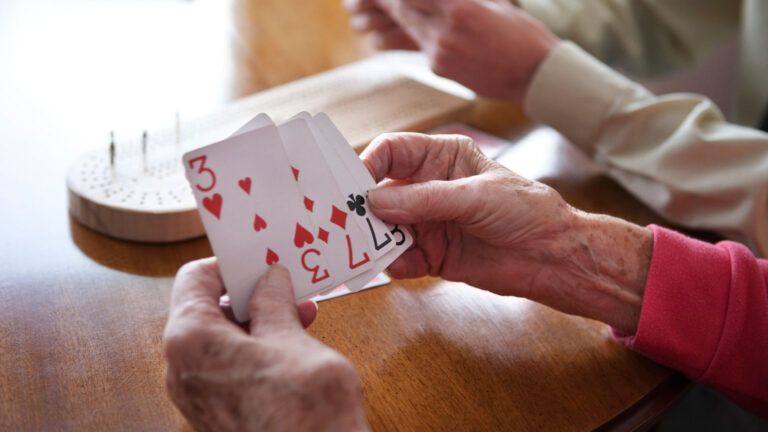Shortly after we were married, my husband, Richard Halliday was rummaging through some old papers and keepsakes of mine when he came upon a yellowed card, and on it, in the scrawl of a schoolgirl, was written:
“I would be true, for there are those who trust me; I would be pure, for there are those who care; I would be strong, for there is much to suffer; I would be brave, for there is much to dare; I would be a friend to all–the foe–the friendless; I would be giving, and forget the gift; I would be humble, for I know my weakness; I would look up–and laugh–and love–and lift.”
On the other side of the card was a faded violet, and a note in the same childish scrawl:
“Mrs. Alvis read this poem to us girls today, and I hope my Heavenly Father will always let me live by this creed.”
ENJOYING THIS STORY? SUBSCRIBE TO GUIDEPOSTS MAGAZINE!
Mrs. Alvis was my teacher in Weatherford Junior High in Texas.
As soon as he found it, Richard framed the creed in a glass panel, so that the words on one side, and my prayer to abide by them on the other, could both be visible. It is on a table in the library of our home in Connecticut, where it is always seen and often read aloud.
Some nine years ago I was rehearsing a play called Lute Song, which had a Chinese setting. Richard, doing some research on the background of Lute Song, found this ancient, anonymous proverb:
“If there is righteousness in the heart, there will be beauty in the character. If there be beauty in the character, there will be harmony in the family home. If there is harmony in the home, there will be order in the nation. When there is order in the nation, there will be peace in the world.”
The proverb is embroidered in a petit-point rug, which my husband designed for our living room. It took me over three years to make the rug. But I did.
In the rug is also a view of our home in winter; the cherry tree in the yard which our 13-year-old daughter, Heller, loves so much; a figure of Heller when she was five and acting and traveling with us in Annie Get Your Gun, because we wanted her with us; and my son Larry’s field of yellow mustard and red roses, and his favorite guitar. In one corner are a pair of clasped hands: mine and Richard’s.
Recently, after dinner one Sunday, I looked at the rug and asked Richard and Heller, and myself: “Did I really do this? Why, I couldn’t sew a straight seam if my life depended on it.”
Who or what guided my inept hands?
The creed and proverb are the real lights in the Halliday home; the lights we try to live by.
READ MORE: MARY MARTIN ON HEALING SOLITUDE
All the parents I know, including myself, face the frightening and frustrating feeling of losing all contact with their children when they are in their teens. At 17 Larry came home on a school holiday and got our permission to attend a card party with his friends in New York City.
At 2:00 A.M. he had not returned. The next hour was an agony. At 3:00 A.M. he phoned and said:
“I didn’t realize it was so late because we were having such a good time. We’re in this girl’s apartment.” He gave us the phone number and address, and added, “I’m not doing anything you’d be ashamed of.”
“I would be true, for there are those who trust me …”
Larry is in the Air Force now in England and was married last December 18 to a girl with the lovely name of Maj. She’s Swedish and a dress designer in London, and she wrote us a full description of their wedding ceremony in a Swedish church in London.
“You would have been terribly proud of your son,” she said. “When he discovered I had only a Swedish Bible, he gave me an English one. He doesn’t read Swedish.”
Larry’s letters are amazing and wonderful because he’s pouring back all the things now we thought we could never teach him: “I’m beginning to understand all the anxious moments I’ve caused you and Richard,” he writes, “and all your problems and hopes.”
“If there is righteousness in the heart, there will be beauty in the character …”
Heller is beginning to pour back the things we never thought we could teach her either. During the Los Angeles run of Peter Pan, our most exciting venture, Heller cracked her toes badly while playing one afternoon.
But she performed that night and every night after, acting, singing, and dancing, and we never knew about her cracked toes until much later.
When we arrived in New York, her grandparents arranged a tea dance for Heller’s birthday with great detail and delight. On the day of the event Heller awoke with a bad case of virus. Richard called off the dance regretfully, but Heller pleaded:
“Daddy, Grandma has been planning this for so long. We just can’t do this to her. Don’t call it off. I can’t go, but you and Mother can.”
We didn’t go to the dance, of course. But it was the only performance of Peter Pan that Heller missed, though we did it 128 times in San Francisco and Los Angeles and 148 times in New York, including the TV colorcast last March.
In 1945, when I was touring the country in One Touch of Venus, Heller was three-and-a-half, and remained in Huntington, West Virginia, with her grandmother. We hungered to see her, Richard and I, and as soon as the show closed in Cincinnati, we rushed to Huntington.
Everyone was at the station to meet us, grandmother, great-grandmother, aunt, everyone–but Heller.
“There’s been a slight accident,” they explained, and all my happy anticipation vanished in anguish.
Heller had been bitten by a dog, on her eye, cheek, and mouth. She lay in her little bed, drugged with sulfa and anti-rabies serum, her lovely little child’s face black and blue and swollen. My heart ached for her, but I held any tear tight within myself …
“I would be strong, for there is much to suffer …”
Tears during a child’s torment are an expression of self-pity. I prayed God would help her. He did.
They say those who act carve in snow. If there is any joy in our grueling work, it is only the joy we give others. When we do, we are repaid a hundredfold.
“I would be a friend to all–the foe–the friendless; I would be giving, and forget the gift; I would be humble, for I know my weakness; I would look up–and laugh–and love –and lift.”
When I needed them most, such thoughts have given me strength beyond endurance.
There have been times during the 276 performances of Peter Pan when I had a bad attack of flu (on a matinee day too), several colds which were doctored in the wings to give me sufficient voice to sing, and emergency treatment after I flew head-on into a wall.
For those who do not know Peter Pan, that incredible, but real, boy does a lot of flying from Never-land to our land. An invisible wire is attached to my back and controlled by experts behind the scenes. But even the best of mechanical devices sometimes fail. It is amazing that they fail so rarely.
Anyway, in San Francisco I flew into the wall and tore all the ligaments on my left side. Worried doctors agreed: “You can’t function. Don’t try.”
But thousands of children were expecting to see Peter Pan, we just couldn’t disappoint them. With many novocaine injections, I went on.
“I would be brave, for there is much to dare …”
After that accident there was nothing to fear except fear. But my creed and proverb forbid it … just as they forbid ugliness or pettiness or anger.
I had occasion to read the creed on television once and a few days later received this letter from a minister in Wilmington, Delaware:
“The creed you quoted, ‘I Would Be True,’ was written by Howard Walter, a colleague of mine during the first World War. The last time I saw him was in Bombay in August, 1918.
He had come to India to work, in spite of the doctor’s warning that the condition of his heart and lungs was such that his chances of survival were very poor.
“One morning he read me a telegram that had just come from his wife, saying that she and their children were down with severe cases of the flu in Lahore. Howard said: ‘I must go to Lahore at once. There is no doctor or nurse available in that city, and all are down with this awful disease.’
“Two days later I received word of his death from flu. We loved him greatly. His influence in India was quite wonderful. Your reading his poem is evidence that it still continues.”
Things never die, do they? A timeless link is forged with the lovely words and thoughts written by a missionary in India, a friend in Wilmington who cannot forget him, and a schoolgirl in Texas who loved the teacher for the sake of the creed she taught.
Did you enjoy this story? Subscribe to Guideposts magazine.




